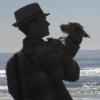-
Welcome to the eG Forums, a service of the eGullet Society for Culinary Arts & Letters. The Society is a 501(c)3 not-for-profit organization dedicated to the advancement of the culinary arts. These advertising-free forums are provided free of charge through donations from Society members. Anyone may read the forums, but to post you must create a free account.
Home Bartending
-
Similar Content
-
- 26 replies
- 22,333 views
-
- 15 replies
- 11,564 views
-
- 1,061 replies
- 239,979 views
-
Generational Differences in Bar Behavior, and How Gen Z Annoys Bartenders (Amongst Others)
By weinoo,
- 10 replies
- 2,496 views
-
- 397 replies
- 87,952 views
-
-
Recently Browsing 0 members
- No registered users viewing this page.





Recommended Posts